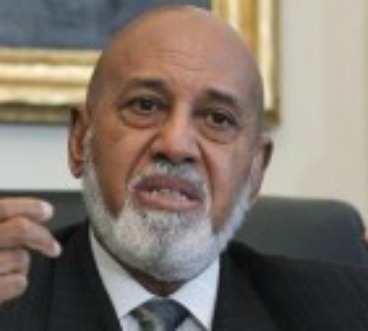Madam Speaker, just before Congress returned to session this week, our Nation lost a gentleman who served with distinction in this body for 26 years and whose name became forever associated with the human rights struggle in the former Soviet Union. Congressman Charles Vanik served his constituents of the Cleveland, OH, area from 1955 to 1981. In 1968, he voluntarily gave up his seat in a district that had become primarily African-American to allow my good friend and our former colleague, Mr. Louis Stokes, an opportunity to serve in the Congress. It says something for Mr. Vanik’s reputation as a conscientious and hard-working Member that he could switch to a nearby district, defeat a long-time incumbent of the other major party, and return to Congress.
I did not know Mr. Vanik personally, but as Chairman of the Helsinki Commission, I am particularly familiar with his contribution to the struggle to allow Soviet Jews to leave the Soviet Union and emigrate to Israel.
In the early 1970s, Soviet Jews who wished to emigrate to Israel faced government harassment and even prison terms in one of the many labor camps stretched along the eleven time zones of the Soviet Union. This issue became especially acute in 1972 when the Soviet government announced it would level an onerous “education tax” on Soviet Jews who wished to emigrate. As Chairman of the Subcommittee on Trade of the House Ways and Means Committee, Mr. Vanik stepped up to sponsor an amendment to the Trade Reform Bill of 1974 introduced by Senator Henry Jackson of Washington State. This amendment linked awarding Most Favored Nation trade status to a nation’s record on unhindered emigration for its citizens. President Nixon and Mr. Kissinger didn’t like it, but it was a law whose time had come.
In the years that followed its passage, through detente and the tense days of United States-Soviet relations in the early 1980s, the Jackson-Vanik Amendment became a powerful symbol of the Congress’ determination to see that the Soviet Union lived up to the Helsinki Accords.
Today, Madam Speaker, the Cold War is over, the Soviet Union is happily no more, Jewish citizens of Russia, the successor state to the Soviet Union, are free to emigrate to Israel or any other nation that
will grant an entry visa.
Ironically, Congress has not yet fully “graduated” Russia from the provisions of the Jackson-Vanik Amendment. I do hope that, regardless of the many difficulties in relations with Russia that we are now experiencing, we will be able to do so in the near future. I am sure Chairman Vanik would agree with me.
Madam Speaker, although I was not acquainted with Chairman Vanik, I know that he left a legacy of deep respect when he retired from this august body. May we all serve our constituents, our Nation, and all those with whom we share this planet as conscientiously as he did.









